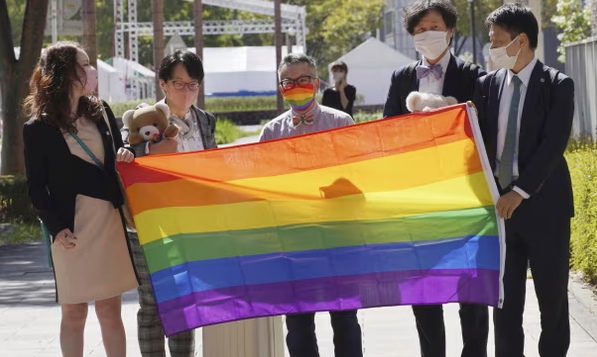On Wednesday, Japan’s highest court has ruled unconstitutional a legal provision requiring people to undergo sterilisation surgery if they want to legally change their gender.
The decision by the 15-judge High Court was the first ruling on the constitutionality of a 2003 law in Japan that mandates the removal of reproductive organs in order for the state to recognise officially sex reassignment. The practice has long been criticised by international human rights and medical organisations.
The case was brought on the application of a plaintiff whose request to change her gender in the family register – to female from biological male – was rejected by lower courts. The decision comes at a time of heightened attention to LGBTQ+ issues in Japan and is a major victory for the community.
Kyodo News reports that the justices ruled unanimously that the part of the law requiring loss of reproductive functions for sex reassignment is unconstitutional. Other details of the ruling were not provided.
As the repealed law read, transgender people who want to change their biological sex in the family registry and other official documents must undergo a diagnosis of gender identity disorder and surgery to remove reproductive organs.
In February, former Assistant Prime Minister Fumio Kishida said that he would not want to live next to LGBTQ+ people and those citizens would leave Japan if same-sex marriage was allowed. Following this statement, LGBTQ+ activists in Japan stepped up efforts to pass an anti-discrimination law. However, change has been rather slow, and Japan remains the only G7 member with a ban on same-sex marriage and no legal protections, including an effective anti-discrimination law.
The plaintiff, who is identified only as a resident of western Japan, originally filed the request in 2000, arguing that the operation requirement violates the constitutional equal rights provisions and imposes a tremendous economic and physical burden.
Earlier this month, a local family court made an unprecedented decision to grant a transgender man’s request for sex reassignment without mandatory surgery, saying the rule was unconstitutional. In the aftermath, human rights groups and Japan’s LGBTQ+ community had hopes of changing the law.
Under a special law enacted in 2004, people wishing to register a sex change must have their former reproductive organs, including testicles or ovaries, removed and have a body that “superficially resembles the genitals” of the sex they wish to register.
Since then, more than 10,000 Japanese residents have already officially changed their gender, according to court documents filed on 11 October, granting Gen Suzuki’s request for a non-surgical sex change.
According to the Shizuoka court ruling, most of the 50 European and Central Asian countries that have laws allowing gender reassignment on official documents do not require surgery to remove reproductive organs. The practice of changing sex in this way has become common in many countries around the world, the ruling said.
On Tuesday, some groups opposed to expanding options for transgender people, especially those who transition from male to female, submitted petitions to the Supreme Court asking it to keep the surgery requirement in place.
